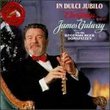| All Artists: Scholl, Academia Bizantina, Dantone Title: Arcadia Members Wishing: 0 Total Copies: 0 Label: Decca Import Original Release Date: 1/1/2000 Re-Release Date: 1/13/2004 Album Type: Import Genre: Classical Style: Opera & Classical Vocal Number of Discs: 1 SwapaCD Credits: 1 UPC: 028947029625 |
Search - Scholl, Academia Bizantina, Dantone :: Arcadia
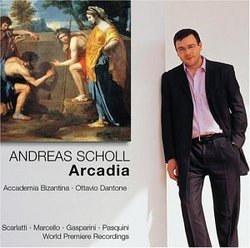 | Scholl, Academia Bizantina, Dantone Arcadia Genre: Classical
This Sumptuous Disc of Cantatas, Telling of the Simple Love of Nymphs and Shepherds in an Ideal Pastoral Landscape, Presents Scholl's Uniquely Beautiful Countertenor Voice in Ravishing Music of Great Sensuality. "Arcadia" ... more » |
Larger Image |
CD DetailsSynopsis
Album Details This Sumptuous Disc of Cantatas, Telling of the Simple Love of Nymphs and Shepherds in an Ideal Pastoral Landscape, Presents Scholl's Uniquely Beautiful Countertenor Voice in Ravishing Music of Great Sensuality. "Arcadia" Includes Instrumental Works from Composers Associated with the Arcadian Academy, Including Such Well Known Names as Corelli and Scarlatti. Similar CDs
Similarly Requested CDs
|
CD ReviewsBeautiful music and excellent teamwork Frank Bernhard | Boston MA | 01/15/2004 (5 out of 5 stars) "The countertenor voice leaves much space to hear in it, whatever you want to project into it.....From "strange effects" to angelic voices,androgyny....you name it. Good news is that the new breed of countertenors like Daniels,Asawa and Scholl evolved from the "angelic voice" projection which,in all its beauty,gets soon pretty boring,to full grown singers.They try to approach each piece they sing individually,giving meaning to each word,using their voice with all its colors,rather than presenting "unreflected beauty". The more operatic approach chosen by Scholl in this recording might turn down some "early music" fans who prefer the Harmonia Mundi recordings,where the young Andreas Scholl relies more on the beauty of his phrasings and his voice,than on truly "dramatic" singing.The guy grew up and the newly-gained opera experience certainly shows in this recording.The long and complex recitatives are skillfully executed with every bit of drama and "affetto" they need.The continuo group led by maestro Dantone on the harpsichord anticipates,reflects and comments the words of the singer,trascending mere "accompagnment".The "Accademia Byzantina" under Ottavio Dantone confirms once more why they are concidered to be the new star ensemble amongst european baroque orchestras.They manage to unite extreme precision in articulation,phrasing and dynamics with true "soulful" playing.Every bar they play "makes sense",nothing happens unreflected.First violinist Stefano Motanardi leads his string section with joyful and energetic playing,presenting some amazing virtuosity and creativity in his ornamentations.Scholl chooses to not overload the da-capi with ornamentations and therfore not to "re-write" them .Historically that may not be "authentic" (the castrati used to invent quite extravagant ornamentations) but,through giving each da-capo the right amount of new perspective, choosing different colors vocally,along with tasteful ornaments in the right moment Scholl and Dantone give a very lively, "organic" feeling to those beautiful cantatas. Scholl sings now with more vibrato and chooses also a darker vocal color when the occasion demands it.Again that might not appeal to some early music lovers who prefer almost vibratoless voices (btw... historically vibrato was,in the 17th and 18th century,considered to be a sign of a "free" and healthy voice....) but it serves the words and the drama of each cantata well. The strongest point of this recording are not singer, compositions or orchestra.The true strengh is the amalgamation of those three elements.Orchestra and singer do not compete against eachother,nor is the orchestra simply accompanying.Scholl and Dantone both put the "story" first and assit eachother in a congenial way,re-animating beautiful cantatas that "slept" in archives for the last 250 years." Mismatch Grady Harp | 01/14/2004 (3 out of 5 stars) "I am, like so many people, fascinated by Scholl's voice. His Harmonia Mundi releases had 'this strange effect on me'. On this latest release his voice somehow does not match the music. Or may be the music does not match his voice......." Extraordinary Album! Grady Harp | Los Angeles, CA United States | 07/14/2004 (5 out of 5 stars) "Andreas Scholl continues to amaze his growing public. Not only is his voice now even more facile and beautiful, his sense of programming is reaching that level held by the singers who not only have a gorgeous instrument but also attach it to an intellect and respect for the composers of the past. How fortunate we are to live in a period when countertenors are popular and plentiful! David Daniels, Brian Asawa, Bejan Mehta etc for some reason do not present a feeling of competition but a celebration for opening opportunities for the countertenor repertoire. In this collection of 'motets' or pre-operas the subject matter deals with that Elysian Grove or Eden that is 'Arcadia'. Though we know the works of Scarlatti and Corelli in other idioms, we here have a smattering of works that include composers as Gasparini, Marcello, Pasquini, and Bencini - all from the 17th and 18th centuries. The works are consistently fine, aided in no small part by the brilliant musicianship and vocal finesse of Scholl in collaboration with the Accademia Bizantina directed by Ottavio Dantone. Each work sets a mood and each work has its thrilling moments. But there is never a suggestion of sameness one might expect from this repertoire, and that is amazing on repeated listenings! No drolling background muzak here: this is Arcadian music at its finest. Andreas Scholl is clearly one of the major performers of the day! Highly Recommended."
|

 Track Listings (32) - Disc #1
Track Listings (32) - Disc #1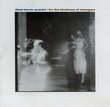
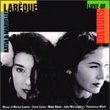
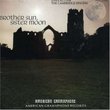
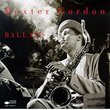

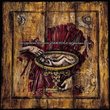



![Across The Universe [Deluxe Edition]](https://nationalbookswap.com/cd//m/51/1251/1241251.jpg)
